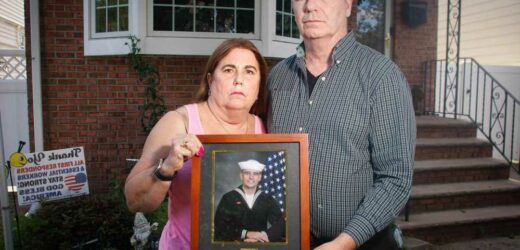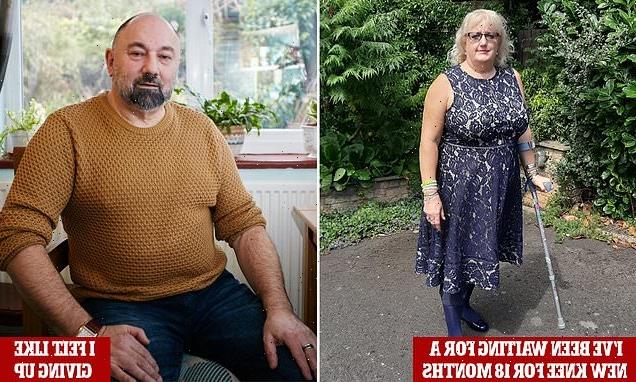More On:
navy
‘Holy s–t, they’re going fast!’ New footage reportedly shows UFOs swarming Navy ship
Biden jokes about Obama comment that UFOs are out there: ‘I would ask him again’
Israel claims to have thwarted Hamas attempt to launch seaborne attack
AP Hamas claim panned, Blinken’s ‘seen no evidence’ of presence in their HQ
A grieving Staten Island couple have one Memorial Day wish: to find out how their US Navy son died two years ago.
James Bradley, 22, was found dead inside his locked room at the Port Hueneme Naval Base barracks in Ventura County, Calif., on Oct. 30, 2019 — leaving his parents and four older sisters in shock.
Navy personnel only mentioned “informally” that Bradley, who was raised in Brooklyn and was captain of the Xavier High School track team, had taken his own life.
But there never been any hints of suicidal thoughts from their son, Teri and James Bradley say.
“His dream was to serve in the Navy,” said Teri Bradley, 61. “He was looking to get his first motorcycle. He was coming home for Christmas. Everything was very positive.”
Now, 19 months later, no official communication as to the cause of his death or results of investigations, has been given to them, the Bradleys contend in a Brooklyn Federal Court lawsuit.
“We deserve to know what happened,” said James Bradley, 62, who retired from the NYPD. “This is way too long to wait.”
Their Navy liaison “seemed to lack any information whenever they contacted him,” according to the Bradley’s lawsuit against the Navy. The liaison’s only suggestion: file a Freedom of Information Act request, which was later denied.
“If it was as cut and dry as they say, what is taking almost two years to give us an outcome?” Teri Bradley added.
The Bradleys had to hire a lawyer, and contacted the Ventura County Medical Examiner themselves to learn their son allegedly hanged himself, according to the parents. Bradley’s body was moved by Navy personnel before medical examiner staffers arrived, M.E. records show.
No autopsy or toxicology was performed — only an “external” inspection of the body.
“I would have had an autopsy done. I want to know,” said Teri Bradley. “A visual [inspection] of a body is not an autopsy.”
An autopsy isn’t conducted for every death, the medical examiners office said, adding, “Not every case calls for toxicology or a full autopsy.”
The couple claim they never had a chance to speak privately with their son’s Navy pals at his Brooklyn funeral or a California memorial, because commanding officers were always present.
“The fact that you don’t come forward and present the facts, the delays in this process — is that really what happened or are they just trying to clean up the mess?” said Jim Bradley, adding, “I’m a retired cop, this is not how you treat the family of a person who died, under any circumstance.”
The Navy’s “cloak-and-dagger” approach to communication has left the Bradleys with questions, said their attorney Maryam Hadden.
“It sort of begs the question, is there something there? They only thing they do know is that the Navy hasn’t handled it in a professional manner,” Hadden said.
The Bradley’s appealed the denial of their FOIA request. In an April rejection letter, Navy officials insisted a Naval Criminal Investigative Service probe of James Bradley’s death — which is conducted for all non-combat deaths — was still active.
Another probe, called a Line of Duty Death investigation, was completed by November 2019 and was available to the family upon request, said a spokeswoman, who declined to comment on the litigation.
The Bradleys say they were never told of the Line of Duty Death investigation, or its completion.
“I’ve never heard that term before,” Jim Bradley said.
“No one ever said that,” added his wife. “We know nothing of what we should have had, what we don’t have — all we know is we lost a son.”
Share this article:
Source: Read Full Article




